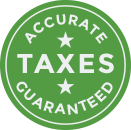Conflicts of Interest in the Church
A conflict of interest presents itself when a person who has a significant relationship with the church may also receive a benefit from something the church is doing. The person may be able to obtain some personal benefit from these circumstances. For example, the church’s lead pastor may also serve on the church’s board. Whenever…
Church Governing Documents
Much like the United States government traces its authority back to the U.S. Constitution and subsequent statutes, each church traces its authority from its primary governing documents: Formation document (Articles or Certificate of Incorporation) and Bylaws. The formation document acts like a church’s constitution, and the bylaws act like the church’s statutes. These governing documents…
Who is a Minister for Tax Purposes?
A minister occupies a unique niche in the United State tax code. He or she is considered an employee for income tax purposes, but self-employed for social security and Medicare. In addition, a minister is eligible for a housing allowance that is not subject to income tax and has the choice to opt-out of social…
Caution! – Does your church pay money to Individuals
Churches sometimes pay money to people out of a desire to be helpful and gracious. But precautions must be taken! Be careful when your church pays money to any individual. Any time a person receives money from a non-profit organization, like a church, the money must be spent in a way that is consistent with…
5 Questions on Church Payroll
Setting up and managing payroll for a church can be complex. There are several questions a church should ask in order to stay compliant with tax and legal requirements. Question 1: Does the church follow standard employment protocols? Like any employer, a church should obtain and keep standard information and documents (including Form W-4 and…
Congress Extends Tax Exemption for Employer-Sponsored Student Loan Repayment
Congress for granting a five-year extension to a temporary tax exemption that allows employers to pay up to $5,250 annually toward each employee’s student debt on a tax-free basis. Employers looking to provide any of its workforce tax-free assistance with student loan debt should check and see if they have an existing 127 education assistance…
13 IRS Audit Red Flags
There’s no sure way to avoid an IRS audit of your tax return, but these red flags could increase your chances of drawing unwanted attention from the IRS. The IRS audited only 0.4% of all individual tax returns in 2019. The vast majority of exams were conducted by mail, which means that most taxpayers never…
Educators can now deduct out-of-pocket expenses for COVID-19 protective items
Eligible educators can deduct unreimbursed expenses for COVID-19 protective items to stop the spread of COVID-19 in the classroom. COVID-19 protective items include, but are not limited to: face masks; disinfectant for use against COVID-19; hand soap; hand sanitizer; disposable gloves; tape, paint, or chalk to guide social distancing; physical barriers (for example, clear plexiglass);…






